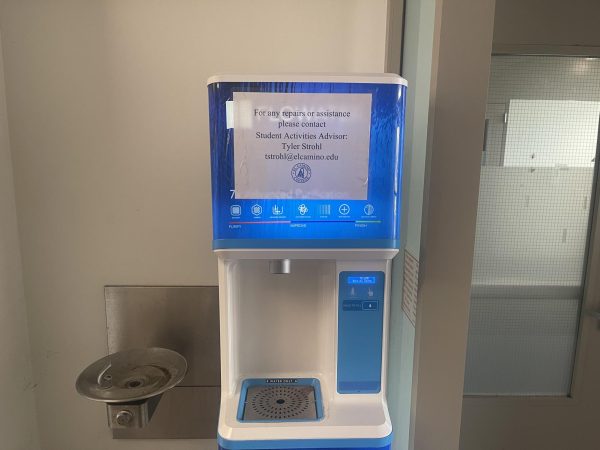Clarification on course auditing policy provided by approved administrative procedure
The course auditing policy at El Camino College has been clarified, and includes further direction on fees, the rules of auditing and the process of applying to audit college courses for no credit.
Members of the El Camino College Academic Senate have approved AP 4070 for the Course Auditing and Auditing Fees Board Policy during an Academic Senate meeting held via Zoom on June 1.
AP 4070 further details the eligibility and provisions for students and F-1 visa students who want to audit a class for no credit, providing more clarification on the regulations in preparation for the fall 2021 semester.
“It’s not really a new policy, [the Senate] wanted to come up with an administrative procedure so everyone was on the same page about auditing, especially now that we’re doing things online, to simplify it for our students and faculty,” Lillian Justice, registrar of Admissions and Records at El Camino College (ECC) said.
According to the administrative procedure, the auditing fee is still legally mandated to be $15 per unit as it has always been prior to AP 4070. However, students enrolled in courses to receive credit for 10 or more units will not be charged any fee for auditing an additional three or fewer units per semester.
“We also want students to understand that, for example, if they are on the California Promise Grant, that doesn’t cover the fees used for auditing if they are not taking the required amount of units,” Justice said.
The regulations for international students enrolled in F-1 visas also state that they may audit a course if they are enrolled with the minimum required number of 12 units, which is needed in order to maintain their visa status.
In the academic senate meeting, Ross Miyashiro, vice president of Student Services at ECC addressed the concern of whether or not a student can audit a class for one semester and enroll in it again the next semester.
While it is allowed, students must get instructor-approval to enroll in a class they have audited.
“Yes they can, that’s why it’s important for faculty to have broad discretion over [that regulation]. [A faculty member] may not want their auditing students to see their exam because they may come back and take the class for credit,” Darcie McClelland, president of the AS said in response to the concerns.
To audit a class, a student must first obtain a Petition to Audit from Admissions and Records, then they must get approval from the course instructor and department dean. According to AP 4070, registration for audit will be held after the third week of classes of a fall or spring semester.
Some students like Jazmin Guererro, early childhood education major, remain unaware of the option to take classes for no credit.
“I did not know [auditing classes] was a thing,” Guererro said. “My counselor helped me choose classes that could help me for my major and still be transferable to a university once I already completed my units.”
The Admissions and Records Office at ECC remains committed to their services for students in helping provide information on policies, procedures and services regarding student records through their website.
“Because we haven’t had much interest in auditing since the pandemic, we’re trying to work on how we can offer that form electronically for students while still having the faculty’s approval and following the correct process.” Justice said.
Editor’s note: Updated to add information hyperlink on F-1 visa on March 16, 1:22 p.m.











